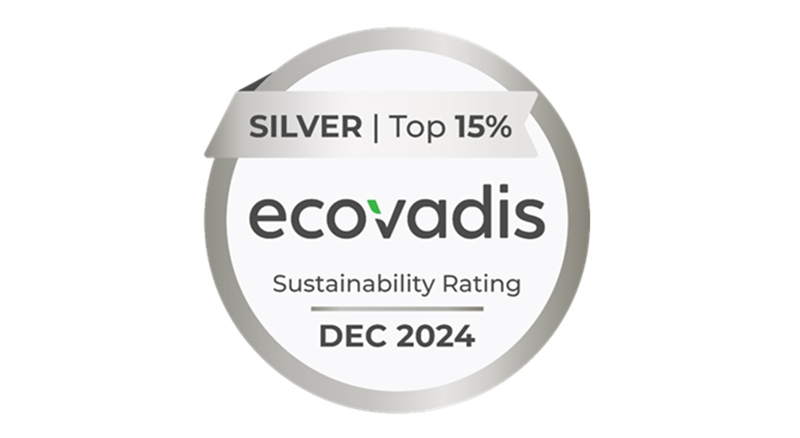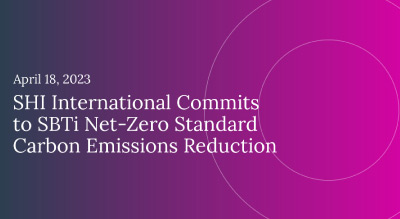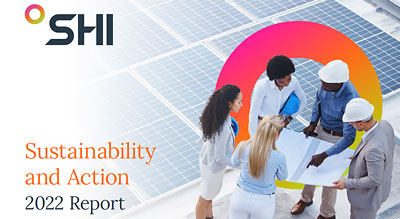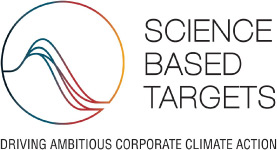Frameworks and standards
SHI follows global best practices to achieve our sustainability goals
Get in touchIn 2022, SHI formalized our commitment to the United Nations Global Compact (UNGC).
SHI has worked with the CDP and EcoVadis for over a decade to evaluate and manage our ESG impact. In April 2023, we committed to the Science Based Targets initiative (SBTi), supporting the Corporate Net Zero Standard for 2050.
SHI’s commitments to sustainability include:
- Setting targets and action plans according to UNGC and SBTi and continuously improving our practices.
- Prioritizing partners who follow sustainable and ethical business practices, including throughout their supply chain.
- Expanding support for our sustainable procurement team and supporting diverse and minority suppliers.
Continually assessing our ethics and sustainability efforts
EcoVadis assesses organizations’ sustainability practices, helping companies understand strengths and weaknesses, benchmark against peers, manage risks, collaborate with suppliers, and access markets. EcoVadis promotes responsible business practices and sustainability integration.
Every year, SHI completes an EcoVadis assessment evaluating our business practices within four areas: environment, ethics, sustainable procurement, and labor and human rights.

Following best practices for environmental impact disclosure
CDP is a not-for-profit charity encouraging organizations to disclose and manage their environmental impacts. The data CDP collects is used by investors, governments, and the public to assess performance and drive sustainability efforts.
CDP aligns with reporting frameworks such as TCFD, GRI, and SASB, making it a valuable tool for organizations to meet regulatory requirements and industry standards for environmental reporting.
The CDP assesses organizations based on their disclosure and environmental impact, typically awarding a letter grade ranging from A to D.
SHI participates in the annual CDP climate and water assessment; results for 2023 are currently pending.

Incorporating evidence-based methods into our sustainability efforts
SASB Standards, managed by the International Sustainability Standards Board (ISSB), identifies industry-specific sustainability risks and opportunities. SASB Standards help organizations improve their environmental impact with cost-effective, evidence-based methods.
SHI's alignment with SASB Standards allows us to disclose ESG performance metrics specific to the IT industry. SHI commits to transparent reporting on our sustainability practices; for further details on SHI’s SASB Standards reporting methods, please refer to page 27 within our recent sustainability report.
Aligning our ambitions with the goals of the Paris Agreement
SBTi provides a recognized framework for organizations to align their sustainability goals with those of the Paris Agreement. SBTi is a collaboration between several organizations, including the United Nations Global Compact (UGNC), the World Resources Institute (WRI), and the World Wide Fund for Nature (WWF).
SHI joined SBTi in April 2023, reinforcing our commitment to addressing climate change and being accountable for our greenhouse gas (GHG) emissions. We’re dedicated to setting ambitious goals to contribute to the global effort of mitigating climate change and intend to develop and submit our targets for validation by April 2025.

Accurately measuring and reporting our greenhouse gas emissions
The GHG Protocol is a globally recognized initiative establishing standardized frameworks for measuring and managing GHG emissions. It covers many entities, including private and public sector operations, value chains, and mitigation actions.
The GHG Protocol provides comprehensive guidelines and tools to help organizations accurately measure, report, and manage their GHG emissions. SHI utilizes these guidelines to help manage and reduce our environmental impact while contributing to sustainability efforts.


 Canada (en)
Canada (en)
 Canada (fr)
Canada (fr)
 EU / EFTA
EU / EFTA
 United Kingdom
United Kingdom
 France
France
 India
India











